On the morning of October 28, the signing ceremony for a strategic cooperation agreement between Zhejiang Institute of Economics and Trade (ZJIET) and China Unicom Hangzhou Branch (hereinafter referred to as "Hangzhou Unicom"), along with the unveiling ceremony for a joint laboratory, was held at the Hangzhou Unicom headquarters. The event was attended by Lao Ciming, Secretary of the ZJIET Party Committee, Lin Feng, Member of the Party Committee and Vice President, Hu Xiao, Secretary of the Party Committee and General Manager of Hangzhou Unicom, Fang Wei, Member of the Party Committee and Deputy General Manager, and other representatives from both sides. Responsible persons from relevant departments including the Organization Department, Academic Affairs Office, School of Business Intelligence, and Library Information Center also participated in the activities .
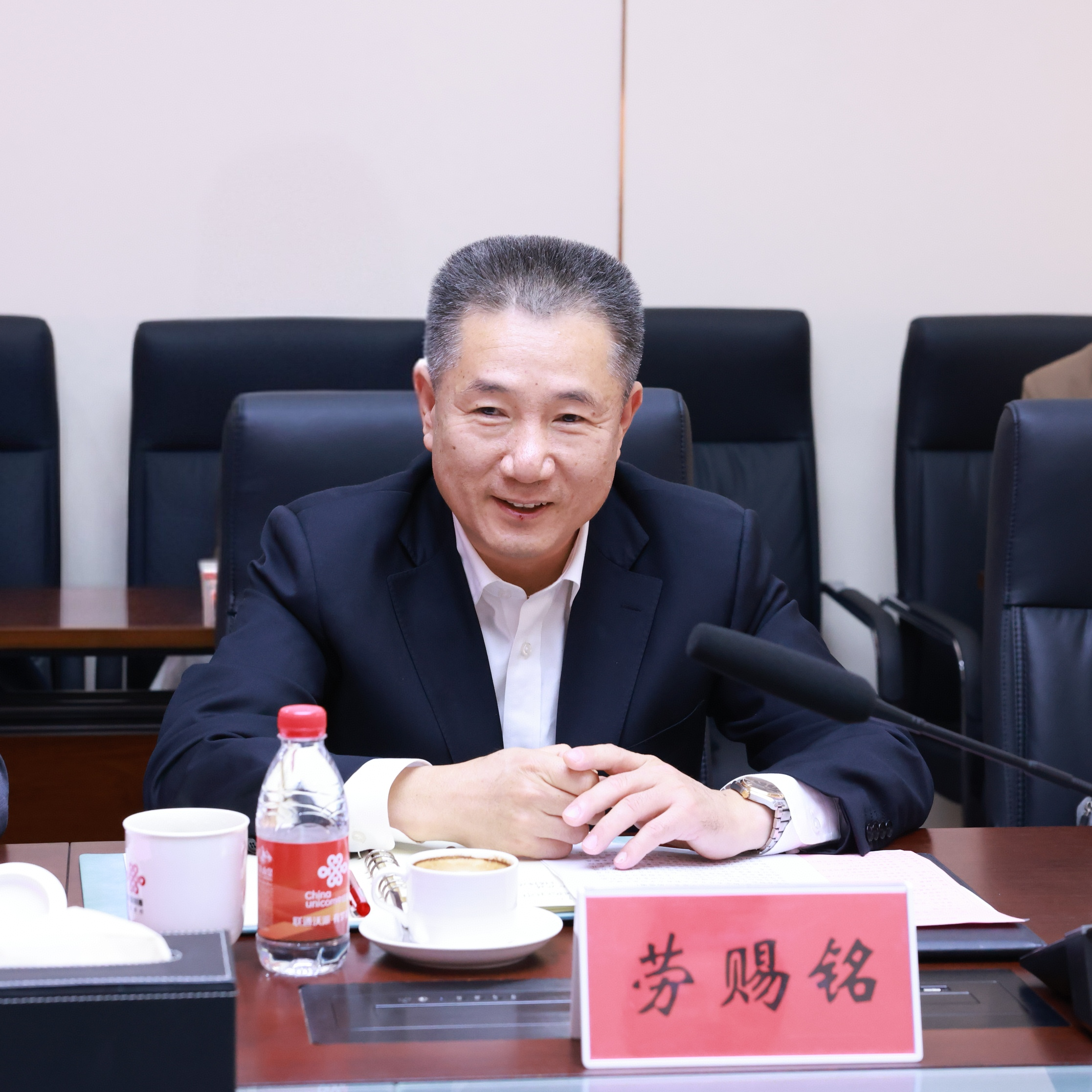
Lao Ciming expressed gratitude to Hangzhou Unicom for its long-standing concern and support for the development of the institute. He briefly introduced ZJIET's educational overview and achievements in industry-education integration. He pointed out that, as a constructor of the national "Double High Plan," ZJIET has always regarded deepening industry-education integration as an important path to improve educational quality and enhance social service capability. This strategic cooperation with Hangzhou Unicom is an integrative and win-win move to empower the construction of a high-level vocational university through digital means, marking a new stage of all-round, multi-field, and deep cooperation between the two parties. He hopes both sides will uphold the cooperation philosophy of "co-integration, co-growth, and co-development," further deepen cooperation content, improve cooperation mechanisms, implement cooperation projects meticulously, continuously expand cooperation space, and strive to form more landmark achievements, jointly contributing greater strength to serving the construction of a strong education province and regional economic and social development.
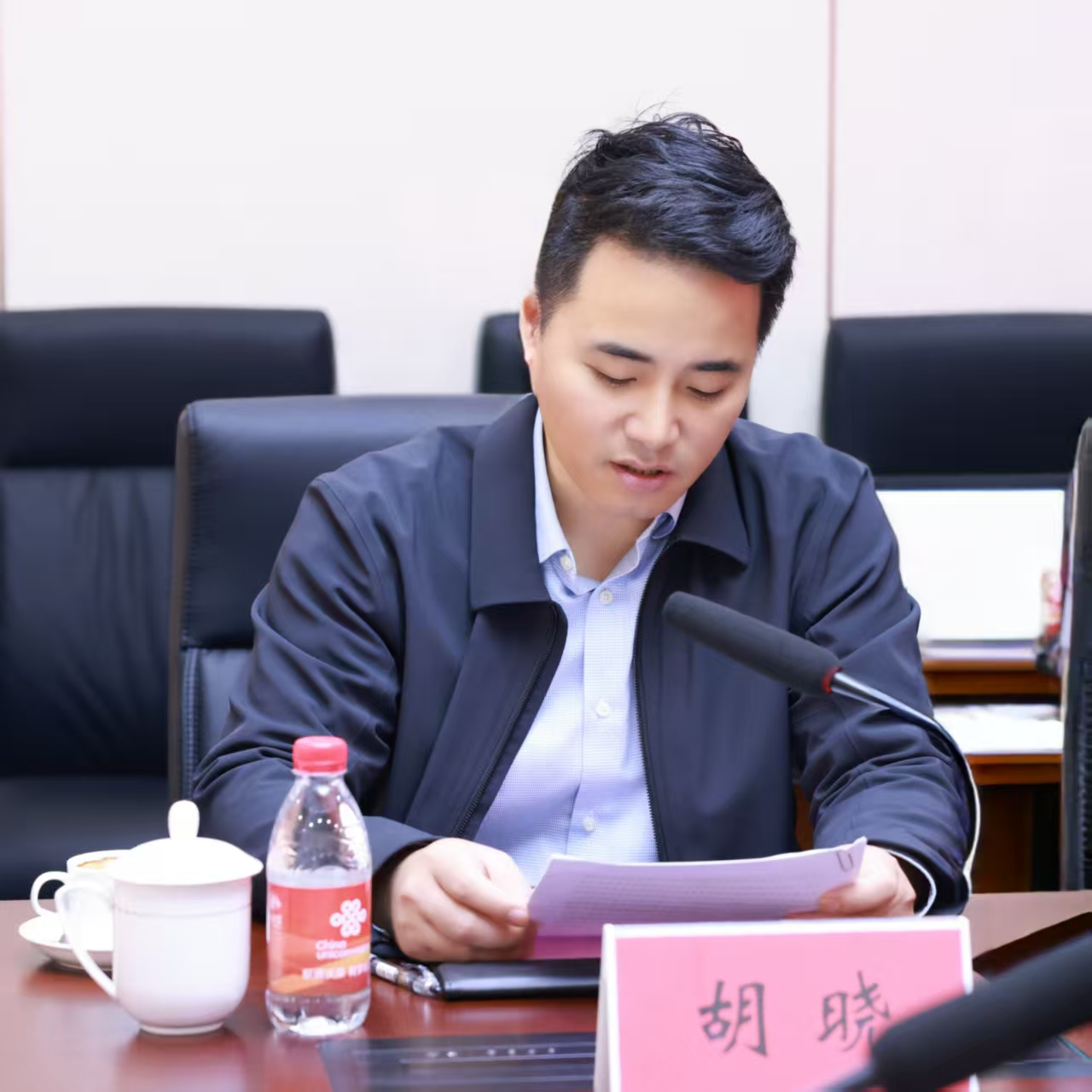
Hu Xiao welcomed the visit of Lao Ciming and his delegation, and introduced the achievements of Hangzhou Unicom in digital infrastructure, future industrial layout, and smart city construction. He stated that as a "national team" in digital information operation services, Hangzhou Unicom will leverage its technical advantages in 5G, artificial intelligence, computing power network, and the Internet of Things to carry out all-round in-depth cooperation with the institute. He hopes that taking this signing as a new starting point, both parties will realize complementary advantages and resource sharing in talent cultivation, industry-education integration, scientific research innovation, and smart campus construction, jointly set a new benchmark for school-enterprise cooperation, and draw a new blueprint for digital reform.
Witnessed by the attendees, representatives from both sides signed the strategic cooperation agreement and unveiled the jointly established "Digital Intelligence Live Streaming Industry-Education Integration Laboratory." This laboratory will serve as a high-energy industry-education integration platform jointly built by both parties, focusing on cutting-edge directions like AI live streaming. Deep cooperation will be carried out in areas such as curriculum system development, intelligent live streaming technology research, and low-latency network live streaming experience optimization. Both parties expect that through this platform, they can deeply integrate the education chain, talent chain, and industry chain, cultivating more high-quality technical and skilled talents for the digital commerce field.
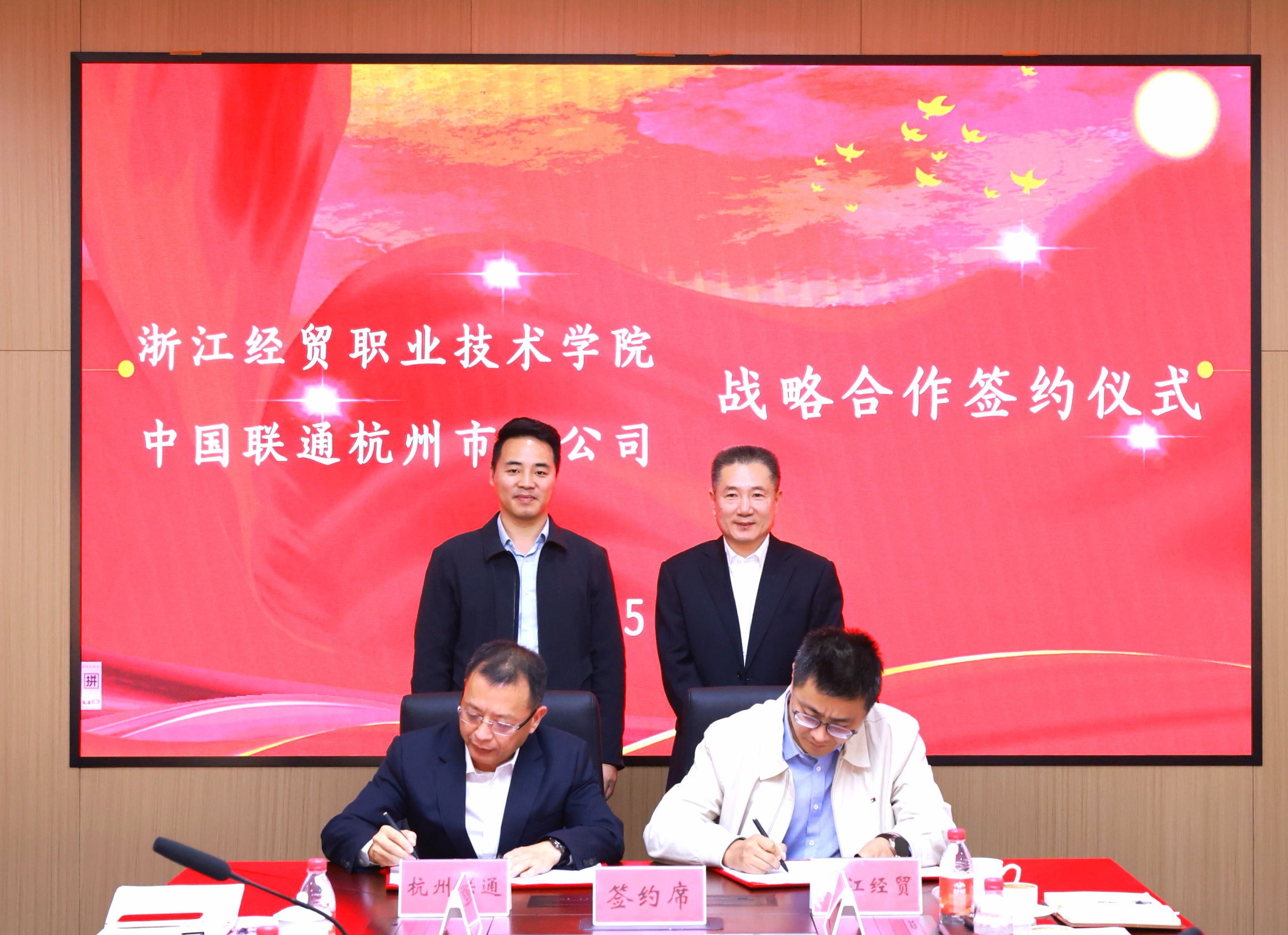
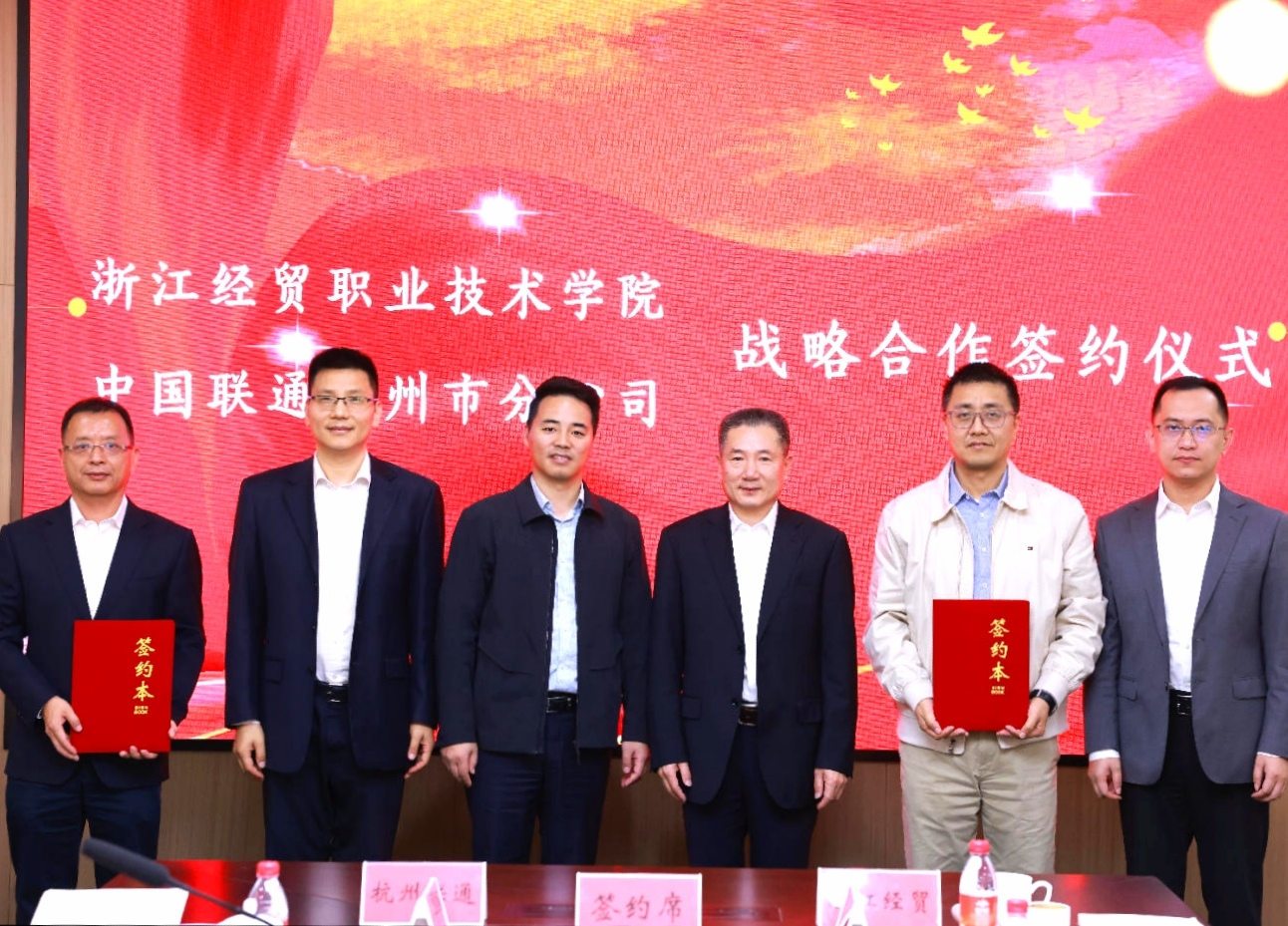
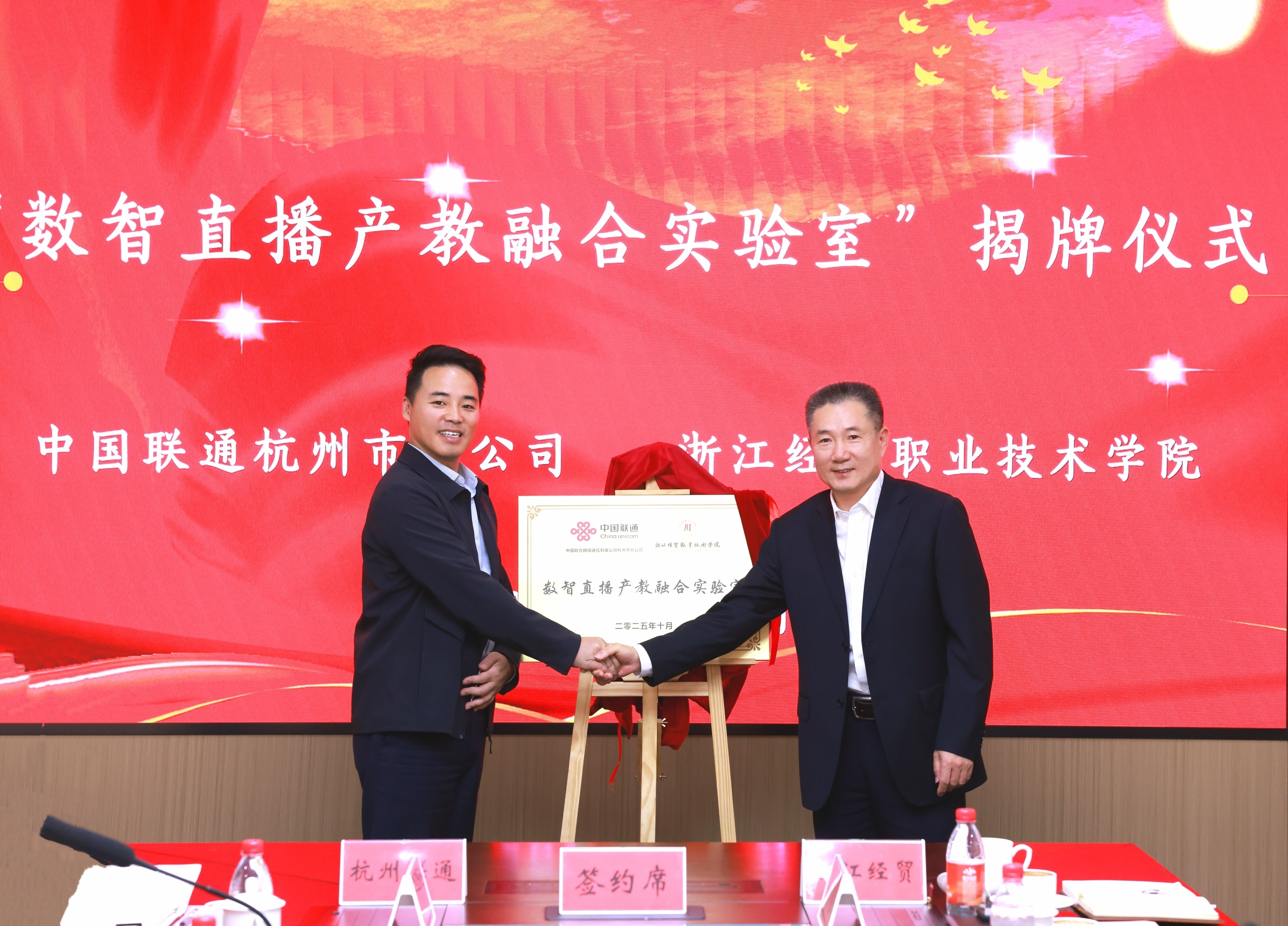
During the symposium, both parties focused on serving national strategies and regional development needs, discussing the construction of a future cooperation ecosystem. They held in-depth exchanges on key areas such as strategic emerging industries including artificial intelligence, cybersecurity, industrial intelligent manufacturing, and low-altitude economy, as well as the construction of integrated industry-university-research bases, digital countryside, and rural revitalization services. Both sides unanimously agreed that this school-enterprise strategic cooperation would achieve resource complementarity and collaborative innovation, deeply integrate cutting-edge technologies such as 5G, AI, and computing power networks into the entire process of teaching and scientific research, promote the organic connection between industry needs and talent cultivation, jointly create a number of demonstrative school-enterprise cooperation achievements, and hand in hand establish a new benchmark for industry-education integration.
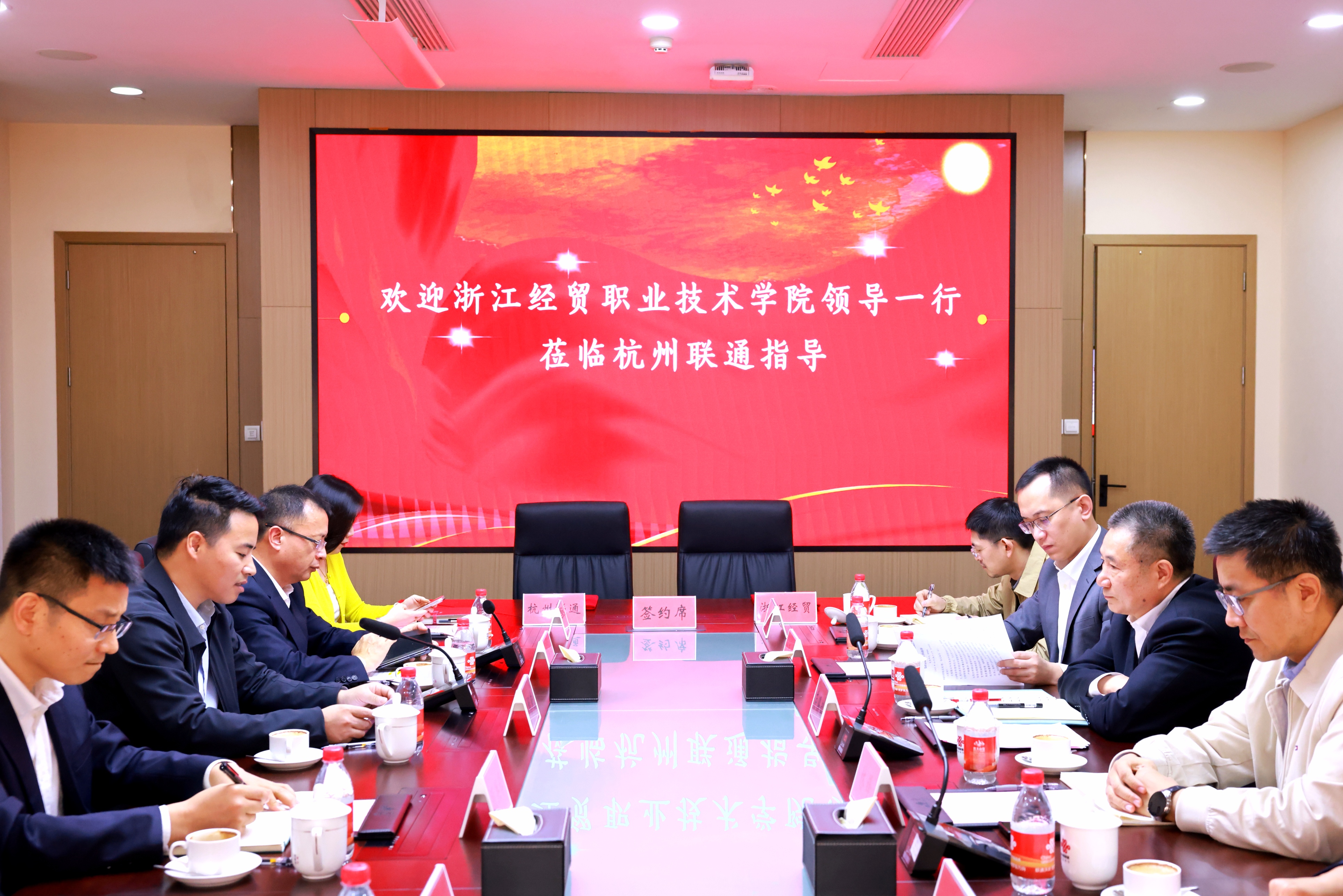
During the event, Lao Ciming and his delegation visited the Unicom "Digital Intelligence Horizon" (Smart Education Special Session) and "Innovation Workshop Empowerment U-lab," conducting an on-the-spot investigation of the innovative applications of cutting-edge technologies like 5G and AI in the field of smart education.
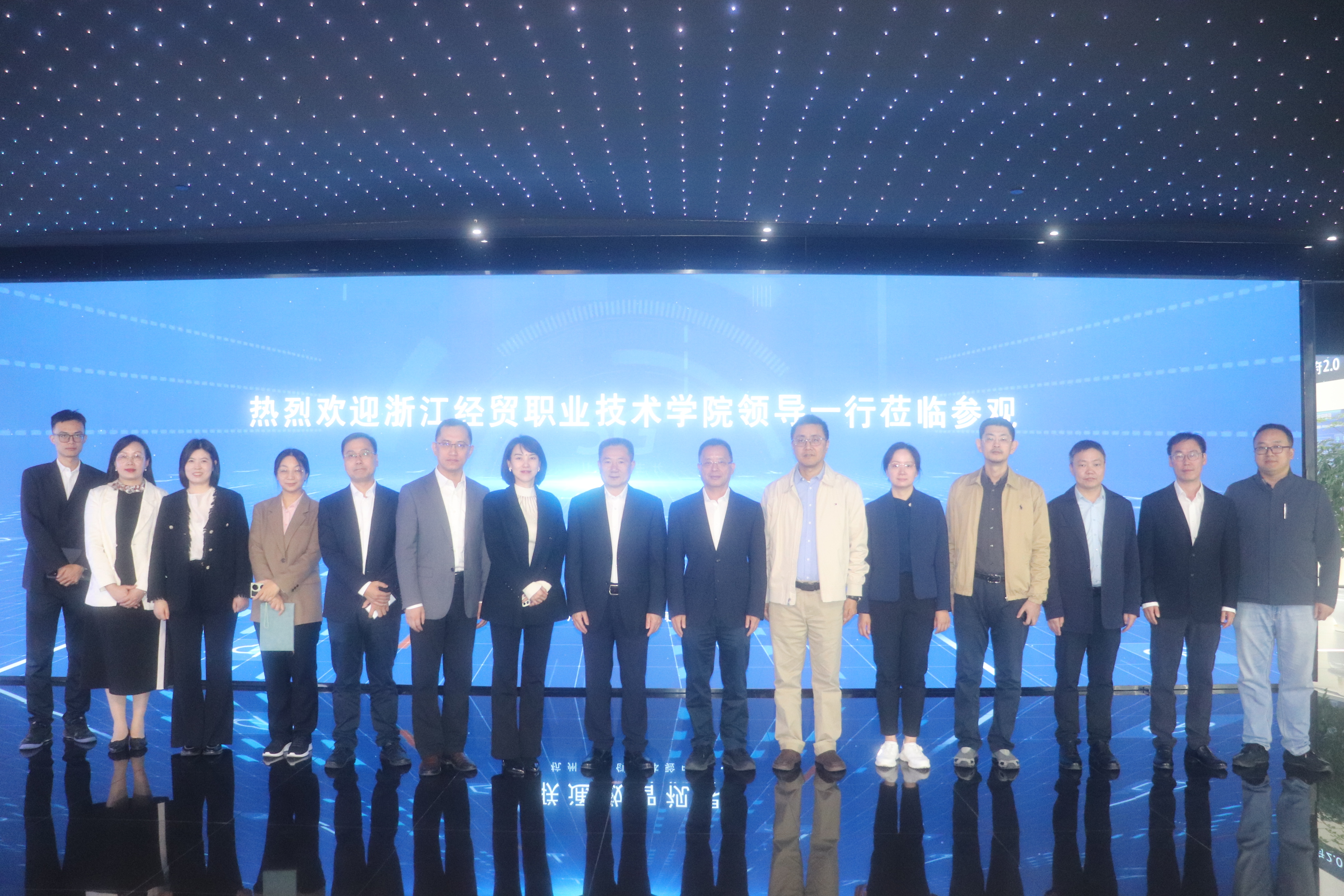
The establishment of this strategic cooperation is a concrete practice by both the institute and the company to thoroughly implement the strategic deployment of the Party's Fourth Plenary Session regarding "advancing the modernization of the national governance system and governance capacity," and to actively serve the construction of a strong education nation and Digital China. Standing at a new starting point of development, both parties will take this cooperation as an opportunity to establish a normalized, institutionalized collaborative mechanism, focus on promoting the effective implementation of cooperation projects, jointly explore new paradigms and paths for industry-education integration, strive to transform the cooperation results into a strong driving force for promoting the high-quality development of the institute and empowering regional economic and social development, and contribute the joint wisdom and strength of the school-enterprise partnership to writing a new chapter of Chinese-style modernization in Zhejiang.

